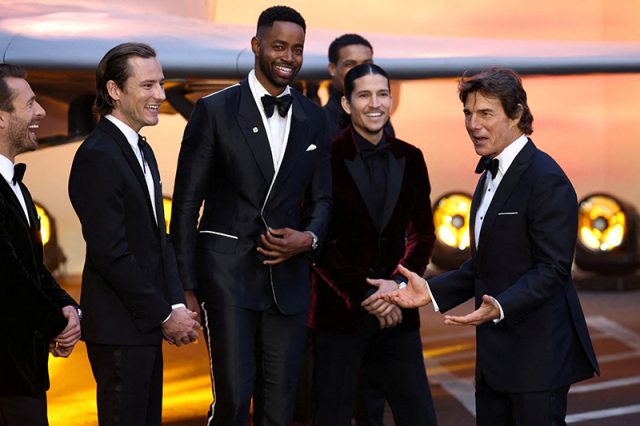
The family of the author whose article inspired the 1986 Tom Cruise movie “Top Gun” on Monday sued Paramount Pictures for copyright infringement over this year’s blockbuster sequel “Top Gun: Maverick.”
According to a complaint filed in Los Angeles federal court, the Paramount Global unit failed to reacquire the rights to Ehud Yonay’s 1983 article “Top Guns” from the family before releasing the “derivative” sequel.
The lawsuit by Shosh Yonay and Yuval Yonay, who live in Israel and are respectively Ehud’s widow and son, seeks unspecified damages, including profits from “Top Gun: Maverick,” and to block distribution of the movie or further sequels.
Paramount said in a statement: “These claims are without merit, and we will defend ourselves vigorously.”
“Top Gun: Maverick” is this year’s biggest box office hit, generating $291 million in North America and $548.6 million globally in its first 10 days of release.
The high-flying action film directed by Joseph Kosinski has received strong reviews, and has Cruise reprising his role as U.S. Navy test pilot Pete “Maverick” Mitchell.
It is already Cruise’s highest-grossing film domestically, surpassing 2005’s “War of the Worlds.”
According to Monday’s lawsuit, Paramount obtained exclusive movie rights to “Top Guns,” published in the May 1983 issue of California magazine, before making the 1986 original, and even gave credit.
But the Yonays said Paramount deliberately ignored how the
copyright reverted to them in January 2020, “thumbing its nose”
at federal copyright law.
The Yonays said they sent Paramount a cease-and-desist letter on May 11, and that in response Paramount denied that the sequel derived from the 1983 article.
They said Paramount also argued that the sequel was “sufficiently completed” by the time the copyright reverted, in a “disingenuous attempt” to qualify for an exception to their claim. The Yonays said the sequel was completed in May 2021.
Lawyers for the Yonays did not immediately respond to requests for comment. Reached by phone, a woman who identified herself as Shosh Yonay and said her son was Yuval declined to
comment.-Reporting by Jonathan Stempel in New York; Additional reporting by Dan Williams in Jerusalem
Editing by Matthew Lewis








